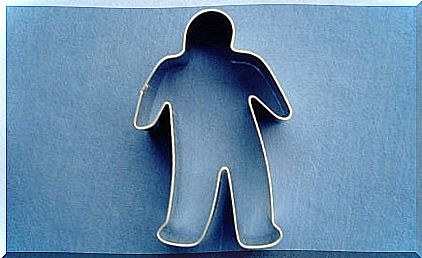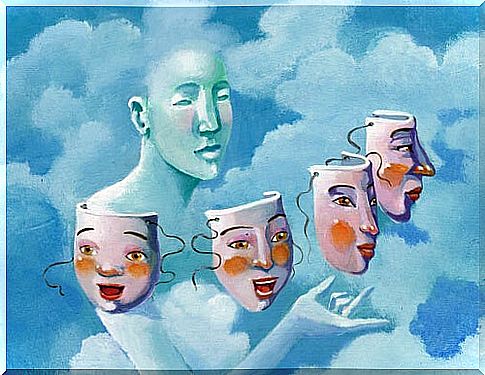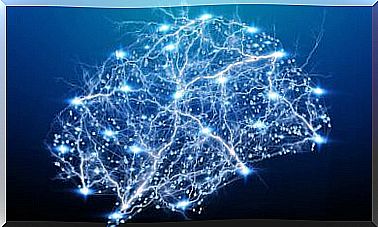Normopathy: The Unhealthy Desire To Be Like Others

We are not molds. We are not obliged to be like others, to dissolve like a sugar in a cup of coffee. Our individuality makes us unique and valuable, however, today we are witnessing – and in many cases victims – of a very marked normopathy. Thus, that almost obsessive need to be like the rest, often turns us into objects within a clearly material society.
We could say that this phenomenon is not new. And clearly it is not. However, writers and psychoanalysts, such as Christopher Bollas, point out that the impact of technology is changing our thinking and even our personality. What we see on the screen of a mobile phone or a computer, for example, suddenly has an immense and overflowing power.
In his latest work, Life in the Age of Confusion, this reference within modern psychoanalytic theory seeks to warn us of a very specific aspect. Around us already live a large number of normopaths. They are people who have not delved the least bit into their own identity, who have not worked on self-knowledge and who live with only one goal: to achieve social validation.
This goal is to put aside their own individuality and try to forcibly fit into what they understand by “being normal.” Thus, by practically imitating what others do, say or think in their groups on social networks, WhatsApp or in that often closed circle of friends or community, they obtain a simile of balance and psychological tranquility.
Leaving the norm, not being able to fit into that invented and impossible mold, inevitably leads them to great suffering. Furthermore, in every normopath there is also a perpetual feeling of melancholy , of existential emptiness. It is the obvious trace of a mind that has not dared to cut the umbilical cord, that has failed to develop its valuable personality individually.

Normopathy is an unhealthy exercise
There is something that is curious. We like to be told about us that we are unique and special. However, most of the time we try to be like everyone else, to fit in with what is “normative” and expected. Otherwise, if we choose to have our own voice, to act according to our desires and motivations, it does not take too long to be pointed out.
Albert Ellis, the famous cognitive psychotherapist, used to say that the key to happiness is learning to be ourselves in an almost always unfair world. Somehow, whether we like it or not, we are forced to grapple with critical voices, with difficulties large and small, and of course with injustices.
The normopath, for his part, does not deal with anything, assumes and lets himself be carried away. He just imitates, obeys and gives in. Because normopathy is terribly passive and comes to rationalize and consider valid acts and dimensions that are sometimes completely illogical. Dr. Christopher Bollas, for example, talks about the case of a young man who tried to commit suicide just because he was not as good at soccer as his friends.
Let’s look at more data that describe normopathy below.

Keys that define a normopath
The term normopathy was coined by the psychoanalyst Joyce McDougall, one of the most important references in the field of childhood schizophrenia. In his book Plea for an Measure of Abnormality, he introduced this word to basically define the fear of individuality.
- They are people who yearn for social approval at all times, leaving aside their own identity and even their dignity.
- Almost without realizing it, they end up creating a false self. It is an entity focused only on the outside, to live magnetized to what happens in its closest environment: friends, community, social networks …
- Thus, in a study carried out by Howard Gardner and Katie Davis, they point out that some of our young people make use of what they have defined as the “app mentality” .
- Some teens navigate their lives the same way they navigate their apps: with few options, using the same tools others use, and avoiding unexpected risks.
- Normopathy is synonymous with suffering. This is something that we must be clear about. Because the normopath suffers, he always feels lost and empty. He is illiterate in the emotional world and does not yet know how to deal with frustration, disappointment, failure …
- Your thinking is operational. That app mentality does not allow you to reflect, and even less to know how that door opens to an interior that is not only neglected, but unexplored.
What do we do with normopathy?
Normopathy is a “disease” that is cured with the exercise of individuality. The normopathic is an individual who denies his inner life to dedicate himself exclusively to the exercise of the superficial, of the empty, of the most insane imitation until he becomes an object. Sooner or later suffering will come, eternal dissatisfaction.
It will be then when this type of profile will be obliged to request help, to start on that journey where to work on self-esteem, identities, values and personalities. Then the moment will happen when the authentic umbilical cord will finally be cut, to rise as a free being with its own imprint, with its own rumor, cadence and peculiarities. Normopathy can be cured, and it will do so when it is fully aware that there is nothing as abnormal as obsessing over being normal.
featured-post url = ”https://lamenteesmaravillosa.com/la-identidad-y-el-barco-de-teseo/”]








